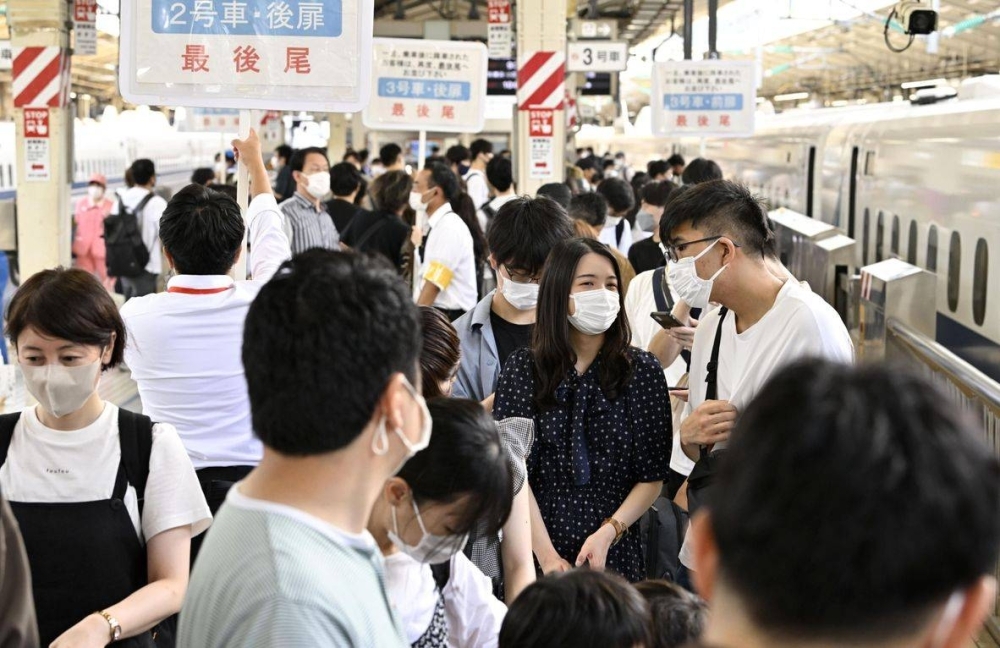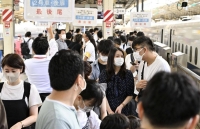Japanese people plan to increase their spending in the upcoming summer vacation period for the second straight year, with an average budget of ¥72,668 ($520), as pandemic restrictions become a thing of the past, a survey by an insurance firm showed Thursday.
In the survey by Meiji Yasuda Life Insurance, planned spending rose ¥4,036 from a year earlier. The results come as Japan enters its first summer holiday period since COVID-19's legal status was downgraded to the same as seasonal flu while pay hikes are giving people more spending money, despite widespread inflationary pressures.
Among the 16.6% surveyed who said they intend to increase their spending in the period, 67.7% said in a multiple-answer question they would outlay more on travel.
The online survey was conducted from June 14 to 23 and received responses from 1,120 men and women in their 20s to 50s.
Respondents who reported they will travel this summer said the top three most common changes to their behaviors compared to last year are increased spending at 35.4%, while 33.2% said they intend to travel farther and 27.4% plan to do so for longer.
Conversely, 15% of respondents said they will be reducing their summer vacation budgets, with pressures on household spending from rising prices as the most commonly cited reason at 64.3%.
Kazutaka Maeda, an economist at the Meiji Yasuda Research Institute, said, "Budgets are still more than ¥15,000 lower from their 2015 pre-COVID peak."
Pointing to demands on household budgets from regular bills, including an expected rise in spending on electricity in the summertime which is forecast to be hotter than usual, Maeda added that "it may take a little more time for households to see an improvement in their livelihoods."




